
AMD Ryzen 5 7600X Benchmark, Test and specs
Last updated:
The AMD Ryzen 5 7600X has 6 cores with 12 threads and is based on the 6. gen of the AMD Ryzen 5 series. The processor uses a mainboard with the AM5 (LGA 1718) socket and was released in Q4/2022. The AMD Ryzen 5 7600X scores 2,197 points in the Geekbench 5 single-core benchmark. In the Geekbench 5 multi-core benchmark, the result is 11,874 points.
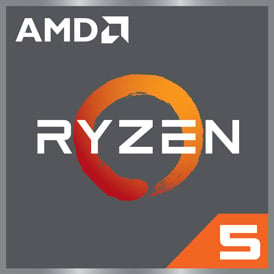
| Name: | AMD Ryzen 5 7600X |
|---|---|
| Family: | AMD Ryzen 5 (84) |
| CPU group: | AMD Ryzen 7000 (14) |
| Architecture: | Raphael (Zen 4) |
| Segment: | Desktop / Server |
| Generation: | 6 |
| Predecessor: | AMD Ryzen 5 5600X |
| Successor: | -- |
CPU Cores and Base Frequency
The AMD Ryzen 5 7600X has 6 CPU cores and can calculate 12 threads in parallel. The clock frequency of the AMD Ryzen 5 7600X is 4.70 GHz (5.30 GHz). The number of CPU cores greatly affects the speed of the processor and is an important performance indicator.
| CPU Cores / Threads: | 6 / 12 |
|---|---|
| Core architecture: | normal |
| Cores: | 6x |
| Hyperthreading / SMT: | Yes |
|---|---|
| Overclocking: | Yes |
| Frequency: | 4.70 GHz |
| Turbo Frequency (1 Core): | 5.30 GHz |
| Turbo Frequency (6 Cores): | 5.30 GHz |
Internal Graphics
The AMD Ryzen 5 7600X has integrated graphics, called iGPU for short. Specifically, the AMD Ryzen 5 7600X uses the AMD Radeon Graphics (Raphael), which has 128 texture shaders and 2 execution units. The iGPU uses the system's main memory as graphics memory and sits on the processor's die.
| GPU name: | AMD Radeon Graphics (Raphael) |
|---|---|
| GPU frequency: | 0.40 GHz |
| GPU (Turbo): | 2.20 GHz |
| Compute units: | 2 |
| Shader: | 128 |
| Hardware Raytracing: | No |
| Release date: | Q3/2022 |
| Max. displays: | 3 |
|---|---|
| Generation: | 9 |
| Direct X: | 12 |
| Technology: | 5 nm |
| Max. GPU Memory: | 8 GB |
| Frame Generation: | No |
Hardware codec support
A photo or video codec that is accelerated in hardware can greatly accelerate the working speed of a processor and extend the battery life of notebooks or smartphones when playing videos.
| h265 / HEVC (8 bit): | Decode / Encode |
|---|---|
| h265 / HEVC (10 bit): | Decode / Encode |
| h264: | Decode / Encode |
| VP8: | Decode / Encode |
| VP9: | Decode / Encode |
| AV1: | No |
|---|---|
| AVC: | Decode / Encode |
| VC-1: | Decode |
| JPEG: | Decode / Encode |
Memory & PCIeThe processor can use up to 128 GB memory in 2 (Dual Channel) memory channels. The maximum memory bandwidth is 83.2 GB/s. The memory type as well as the amount of memory can greatly affect the speed of the system. |
|
| Memory type: | Memory bandwidth: |
|---|---|
| DDR5-5200 | 83.2 GB/s |
| Max. Memory: | 128 GB |
| Memory channels: | 2 (Dual Channel) |
| ECC: | Yes |
| PCIe: | 5.0 x 24 |
| PCIe Bandwidth: | 94.5 GB/s |
Thermal ManagementThe thermal design power (TDP for short) of the processor is 105 W. The TDP specifies the necessary cooling solution that is required to cool the processor sufficiently. The TDP usually gives a rough idea of the actual power consumption of the CPU. |
|
|---|---|
| TDP (PL1 / PBP): | 105 W |
| TDP (PL2): | 142 W |
| TDP up: | -- |
| TDP down: | -- |
| Tjunction max.: | 95 °C |
Technical details
The AMD Ryzen 5 7600X is made in 5 nm. The smaller the manufacturing process of a CPU, the more modern and energy-efficient it is. Overall, the processor has 38.00 MB cache. A large cache can greatly speed up the processor's speed in some cases such as games.
| Technology: | 5 nm |
|---|---|
| Chip design: | Chiplet |
| Socket: | AM5 (LGA 1718) |
| L2-Cache: | 6.00 MB |
| L3-Cache: | 32.00 MB |
| AES-NI: | Yes |
| Operating systems: | Windows 10, Windows 11, Linux |
| Virtualization: | AMD-V, SVM |
|---|---|
| Instruction set (ISA): | x86-64 (64 bit) |
| ISA extensions: | SSE4a, SSE4.1, SSE4.2,FMA3, AVX2, AVX512 |
| Release date: | Q4/2022 |
| Release price: | 299 $ |
| Part Number: | 100-100000593WOF |
| Documents: | Technical data sheet |
Rate this processor
Benchmark results

The benchmark results for the AMD Ryzen 5 7600X have been carefully checked by us. We only publish benchmark results that have been created by us or that have been submitted by a visitor and then checked by a team member. All results are based on and fullfill our benchmark guidelines.
Screenshots:
Screenshots:
- Geekbench 5.4.1 (32 GB RAM), Windows 11 Pro
- Geekbench 5.4.5 on ASUS ROG CROSSHAIR X670E EXTREME (32GB DDR5-5200), Windows 11 Pro
- Geekbench 6 (32 GB DDR5-5600), Windows 10
Cinebench 2024 (Single-Core)
The Cinebench 2024 benchmark is based on the Redshift rendering engine, which is also used in Maxon's 3D program Cinema 4D. The benchmark runs are each 10 minutes long to test whether the processor is limited by its heat generation.

|
AMD Ryzen 9 7900
12C 24T @ 5.40 GHz |
||

|
Intel Core i5-13600K
14C 20T @ 5.10 GHz |
||

|
Intel Core i5-13600KF
14C 20T @ 5.10 GHz |
||
|
|
AMD Ryzen 5 7600X
6C 12T @ 5.30 GHz |
||

|
AMD Ryzen Threadripper 7980X
64C 128T @ 5.10 GHz |
||

|
Intel Core i9-13900H
14C 20T @ 5.40 GHz |
||

|
Intel Core i9-13900HK
14C 20T @ 5.40 GHz |
||
Cinebench 2024 (Multi-Core)
The Multi-Core test of the Cinebench 2024 benchmark uses all cpu cores to render using the Redshift rendering engine, which is also used in Maxons Cinema 4D. The benchmark run is 10 minutes long to test whether the processor is limited by its heat generation.

|
Intel Core i5-12600K
10C 16T @ 4.90 GHz |
||

|
Intel Core i5-14500HX
14C 20T @ 4.90 GHz |
||

|
AMD Ryzen 7 5800X
8C 16T @ 4.70 GHz |
||
|
|
AMD Ryzen 5 7600X
6C 12T @ 5.30 GHz |
||

|
Intel Core i5-13500HX
14C 20T @ 4.70 GHz |
||

|
AMD Ryzen 7 PRO 8840HS
8C 16T @ 5.10 GHz |
||

|
AMD Ryzen 7 PRO 8845HS
8C 16T @ 5.10 GHz |
||
Cinebench R23 (Single-Core)
Cinebench R23 is the successor of Cinebench R20 and is also based on the Cinema 4 Suite. Cinema 4 is a worldwide used software to create 3D forms. The single-core test only uses one CPU core, the amount of cores or hyperthreading ability doesn't count.

|
AMD Ryzen Threadripper 7970X
32C 64T @ 5.30 GHz |
||

|
Intel Core i9-12900
16C 24T @ 5.10 GHz |
||

|
Intel Core i9-12900F
16C 24T @ 5.10 GHz |
||
|
|
AMD Ryzen 5 7600X
6C 12T @ 5.30 GHz |
||

|
Apple M3 Max (16-CPU 40-GPU)
16C 16T @ 4.06 GHz |
||

|
Apple M3 Max (14-CPU 30-GPU)
14C 14T @ 4.06 GHz |
||

|
Apple M3 (8-GPU)
8C 8T @ 4.06 GHz |
||
Cinebench R23 (Multi-Core)
Cinebench R23 is the successor of Cinebench R20 and is also based on the Cinema 4 Suite. Cinema 4 is a worldwide used software to create 3D forms. The multi-core test involves all CPU cores and taks a big advantage of hyperthreading.

|
Intel Core i5-13400
10C 16T @ 4.10 GHz |
||

|
Intel Core i5-13400F
10C 16T @ 3.90 GHz |
||

|
Intel Core i7-12700H
14C 20T @ 3.80 GHz |
||
|
|
AMD Ryzen 5 7600X
6C 12T @ 5.30 GHz |
||

|
AMD Ryzen 7 5800X
8C 16T @ 4.40 GHz |
||

|
AMD Ryzen 7 5800X3D
8C 16T @ 4.20 GHz |
||

|
Intel Core i5-13500H
12C 16T @ 4.40 GHz |
||
Geekbench 5, 64bit (Single-Core)
Geekbench 5 is a cross plattform benchmark that heavily uses the systems memory. A fast memory will push the result a lot. The single-core test only uses one CPU core, the amount of cores or hyperthreading ability doesn't count.

|
AMD Ryzen 7 7700X
8C 16T @ 5.40 GHz |
||

|
Intel Core i9-14900
24C 32T @ 5.80 GHz |
||

|
Intel Core i9-14900F
24C 32T @ 5.80 GHz |
||
|
|
AMD Ryzen 5 7600X
6C 12T @ 5.30 GHz |
||

|
AMD Ryzen 7 PRO 7745
8C 16T @ 5.30 GHz |
||

|
AMD Ryzen 7 7700
8C 16T @ 5.30 GHz |
||

|
AMD Ryzen Threadripper 7970X
32C 64T @ 5.30 GHz |
||
Geekbench 5, 64bit (Multi-Core)
Geekbench 5 is a cross plattform benchmark that heavily uses the systems memory. A fast memory will push the result a lot. The multi-core test involves all CPU cores and taks a big advantage of hyperthreading.
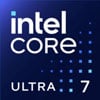
|
Intel Core Ultra 7 155H
16C 22T @ 4.20 GHz |
||

|
Intel Core i7-13800HE
14C 20T @ 4.00 GHz |
||

|
Intel Core i7-13800HRE
14C 20T @ 4.00 GHz |
||
|
|
AMD Ryzen 5 7600X
6C 12T @ 5.30 GHz |
||

|
Intel Core i7-13700H
14C 20T @ 4.40 GHz |
||

|
Intel Core i7-13705H
14C 20T @ 4.40 GHz |
||

|
Intel Core i7-13620H
10C 16T @ 4.40 GHz |
||
Geekbench 6 (Single-Core)
Geekbench 6 is a benchmark for modern computers, notebooks and smartphones. What is new is an optimized utilization of newer CPU architectures, e.g. based on the big.LITTLE concept and combining CPU cores of different sizes. The single-core benchmark only evaluates the performance of the fastest CPU core, the number of CPU cores in a processor is irrelevant here.

|
Intel Core i9-13900K
24C 32T @ 5.80 GHz |
||

|
Intel Core i9-13900KF
24C 32T @ 5.80 GHz |
||

|
Intel Core i7-14700HX
20C 28T @ 5.50 GHz |
||
|
|
AMD Ryzen 5 7600X
6C 12T @ 5.30 GHz |
||

|
Intel Core i9-12900KS
16C 24T @ 5.50 GHz |
||

|
Intel Core i7-14700F
20C 28T @ 5.40 GHz |
||

|
Intel Core i7-14700
20C 28T @ 5.40 GHz |
||
Geekbench 6 (Multi-Core)
Geekbench 6 is a benchmark for modern computers, notebooks and smartphones. What is new is an optimized utilization of newer CPU architectures, e.g. based on the big.LITTLE concept and combining CPU cores of different sizes. The multi-core benchmark evaluates the performance of all of the processor's CPU cores. Virtual thread improvements such as AMD SMT or Intel's Hyper-Threading have a positive impact on the benchmark result.

|
AMD EPYC 7502
32C 64T @ 3.00 GHz |
||

|
Intel Core i5-14500T
14C 20T @ 1.70 GHz |
||

|
Intel Core Ultra 7 155H
16C 22T @ 4.20 GHz |
||
|
|
AMD Ryzen 5 7600X
6C 12T @ 5.30 GHz |
||

|
Intel Core i9-13900H
14C 20T @ 5.00 GHz |
||

|
Intel Core i9-11900K
8C 16T @ 4.80 GHz |
||

|
Intel Core i5-13500HX
14C 20T @ 4.10 GHz |
||
Cinebench R20 (Single-Core)
Cinebench R20 is the successor of Cinebench R15 and is also based on the Cinema 4 Suite. Cinema 4 is a worldwide used software to create 3D forms. The single-core test only uses one CPU core, the amount of cores or hyperthreading ability doesn't count.

|
AMD Ryzen 9 7900
12C 24T @ 5.40 GHz |
||

|
Intel Core i9-12900
16C 24T @ 5.10 GHz |
||

|
Intel Core i9-12900F
16C 24T @ 5.10 GHz |
||
|
|
AMD Ryzen 5 7600X
6C 12T @ 5.30 GHz |
||

|
AMD Ryzen 9 7945HX
16C 32T @ 5.40 GHz |
||

|
Intel Core i7-12700KF
12C 20T @ 5.00 GHz |
||

|
Intel Core i7-12700K
12C 20T @ 5.00 GHz |
||
Cinebench R20 (Multi-Core)
Cinebench R20 is the successor of Cinebench R15 and is also based on the Cinema 4 Suite. Cinema 4 is a worldwide used software to create 3D forms. The multi-core test involves all CPU cores and taks a big advantage of hyperthreading.

|
Intel Core i9-11900K
8C 16T @ 4.80 GHz |
||

|
Intel Core i5-13400
10C 16T @ 4.10 GHz |
||

|
Intel Core i5-13400F
10C 16T @ 3.90 GHz |
||
|
|
AMD Ryzen 5 7600X
6C 12T @ 5.30 GHz |
||

|
Intel Core i9-10900F
10C 20T @ 4.60 GHz |
||

|
Intel Core i9-9940X
14C 28T @ 4.20 GHz |
||

|
Intel Core i9-11980HK
8C 16T @ 4.00 GHz |
||
iGPU - FP32 Performance (Single-precision GFLOPS)
The theoretical computing performance of the internal graphics unit of the processor with simple accuracy (32 bit) in GFLOPS. GFLOPS indicates how many billion floating point operations the iGPU can perform per second.

|
Apple A12 Bionic
Apple A12 @ 1.13 GHz |
||

|
MediaTek Dimensity 820
ARM Mali-G57 MP5 @ 0.90 GHz |
||

|
Qualcomm Snapdragon 835
Qualcomm Adreno 540 @ 0.71 GHz |
||
|
|
AMD Ryzen 5 7600X
AMD Radeon Graphics (Raphael) @ 2.20 GHz |
||

|
AMD Ryzen 5 PRO 7645
AMD Radeon Graphics (Raphael) @ 2.20 GHz |
||

|
AMD Ryzen 7 PRO 7745
AMD Radeon Graphics (Raphael) @ 2.20 GHz |
||
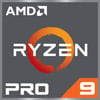
|
AMD Ryzen 9 PRO 7945
AMD Radeon Graphics (Raphael) @ 2.20 GHz |
||
Blender 3.1 Benchmark
In the Blender Benchmark 3.1, the scenes "monster", "junkshop" and "classroom" are rendered and the time required by the system is measured. In our benchmark we test the CPU and not the graphics card. Blender 3.1 was presented as a standalone version in March 2022.

|
Intel Core i9-10900K
10C 20T @ 4.90 GHz |
||

|
Intel Core i9-10900KF
10C 20T @ 4.90 GHz |
||

|
Intel Core i9-10850K
10C 20T @ 4.80 GHz |
||
|
|
AMD Ryzen 5 7600X
6C 12T @ 5.30 GHz |
||

|
AMD Ryzen 9 3900
12C 24T @ 3.10 GHz |
||

|
AMD Ryzen 9 PRO 3900
12C 24T @ 3.10 GHz |
||

|
Intel Xeon E5-2680 v4
14C 28T @ 2.70 GHz |
||
Estimated results for PassMark CPU Mark
Some of the CPUs listed below have been benchmarked by CPU-monkey. However the majority of CPUs have not been tested and the results have been estimated by a CPU-monkey’s secret proprietary formula. As such they do not accurately reflect the actual Passmark CPU mark values and are not endorsed by PassMark Software Pty Ltd.

|
Intel Xeon Silver 4314
16C 32T @ 2.40 GHz |
||

|
Intel Core i7-13800H
14C 20T @ 4.50 GHz |
||

|
Intel Xeon Gold 6148
20C 40T @ 3.00 GHz |
||
|
|
AMD Ryzen 5 7600X
6C 12T @ 5.30 GHz |
||

|
Intel Xeon Gold 6210U
20C 40T @ 2.50 GHz |
||

|
Intel Xeon W-3245M
16C 32T @ 4.00 GHz |
||

|
Intel Core i7-13700H
14C 20T @ 4.40 GHz |
||
Cinebench R15 (Single-Core)
Cinebench R15 is the successor of Cinebench 11.5 and is also based on the Cinema 4 Suite. Cinema 4 is a worldwide used software to create 3D forms. The single-core test only uses one CPU core, the amount of cores or hyperthreading ability doesn't count.

|
AMD Ryzen 7 7700X
8C 16T @ 5.40 GHz |
||

|
AMD Ryzen 9 7900
12C 24T @ 5.40 GHz |
||

|
AMD Ryzen 9 PRO 7945
12C 24T @ 5.40 GHz |
||
|
|
AMD Ryzen 5 7600X
6C 12T @ 5.30 GHz |
||

|
AMD Ryzen 9 7945HX
16C 32T @ 5.40 GHz |
||

|
AMD Ryzen 9 7945HX3D
16C 32T @ 5.40 GHz |
||

|
Intel Core i7-13700KF
16C 24T @ 5.40 GHz |
||
Cinebench R15 (Multi-Core)
Cinebench R15 is the successor of Cinebench 11.5 and is also based on the Cinema 4 Suite. Cinema 4 is a worldwide used software to create 3D forms. The multi-core test involves all CPU cores and taks a big advantage of hyperthreading.

|
Intel Core i9-10900
10C 20T @ 4.60 GHz |
||

|
Intel Core i9-11900K
8C 16T @ 4.80 GHz |
||

|
Intel Core i9-11900KF
8C 16T @ 4.80 GHz |
||
|
|
AMD Ryzen 5 7600X
6C 12T @ 5.30 GHz |
||

|
Intel Xeon W-2170B
14C 28T @ 3.60 GHz |
||

|
Intel Xeon W-2175
14C 28T @ 3.60 GHz |
||

|
AMD Ryzen 7 5800X3D
8C 16T @ 4.20 GHz |
||
CPU performance per watt (efficiency)
Efficiency of the processor under full load in the Cinebench R23 (multi-core) benchmark. The benchmark result is divided by the average energy required (CPU package power in watts). The higher the value, the more efficient the CPU is under full load.

|
Intel Core i5-12400
12,454 CB R23 MC @ 82 W |
||

|
Intel Core i5-12400F
12,454 CB R23 MC @ 82 W |
||

|
Intel Core i9-14900K
38,712 CB R23 MC @ 256 W |
||
|
|
AMD Ryzen 5 7600X
15,315 CB R23 MC @ 103 W |
||

|
AMD Ryzen 5 5600X
10,988 CB R23 MC @ 76 W |
||

|
Intel Core i5-13500
21,216 CB R23 MC @ 147 W |
||

|
Intel Core i5-13500HX
18,560 CB R23 MC @ 129 W |
||
Benchmarks

Cinebench 2024 (SC)
272 entries
272 entries

Cinebench 2024 (MC)
271 entries
271 entries

Cinebench R23 (SC)
586 entries
586 entries

Cinebench R23 (MC)
565 entries
565 entries

Geekbench 5 (SC)
2,488 entries
2,488 entries

Geekbench 5 (MC)
2,461 entries
2,461 entries

Geekbench 6 (SC)
1,755 entries
1,755 entries

Geekbench 6 (MC)
1,703 entries
1,703 entries

Cinebench R20 (SC)
656 entries
656 entries

Cinebench R20 (MC)
604 entries
604 entries

FP32 SP (iGPU)
2,039 entries
2,039 entries

3DMark Timespy (iGPU)
516 entries
516 entries

Blender 3.1 Benchmark
212 entries
212 entries

PassMark CPU-Mark
2,392 entries
2,392 entries

V-Ray CPU-Render
249 entries
249 entries

Cinebench R15 (SC)
1,106 entries
1,106 entries

Cinebench R15 (MC)
1,101 entries
1,101 entries

CPU performance per watt (efficiency)
109 entries
109 entries
News and articles for the AMD Ryzen 5 7600X
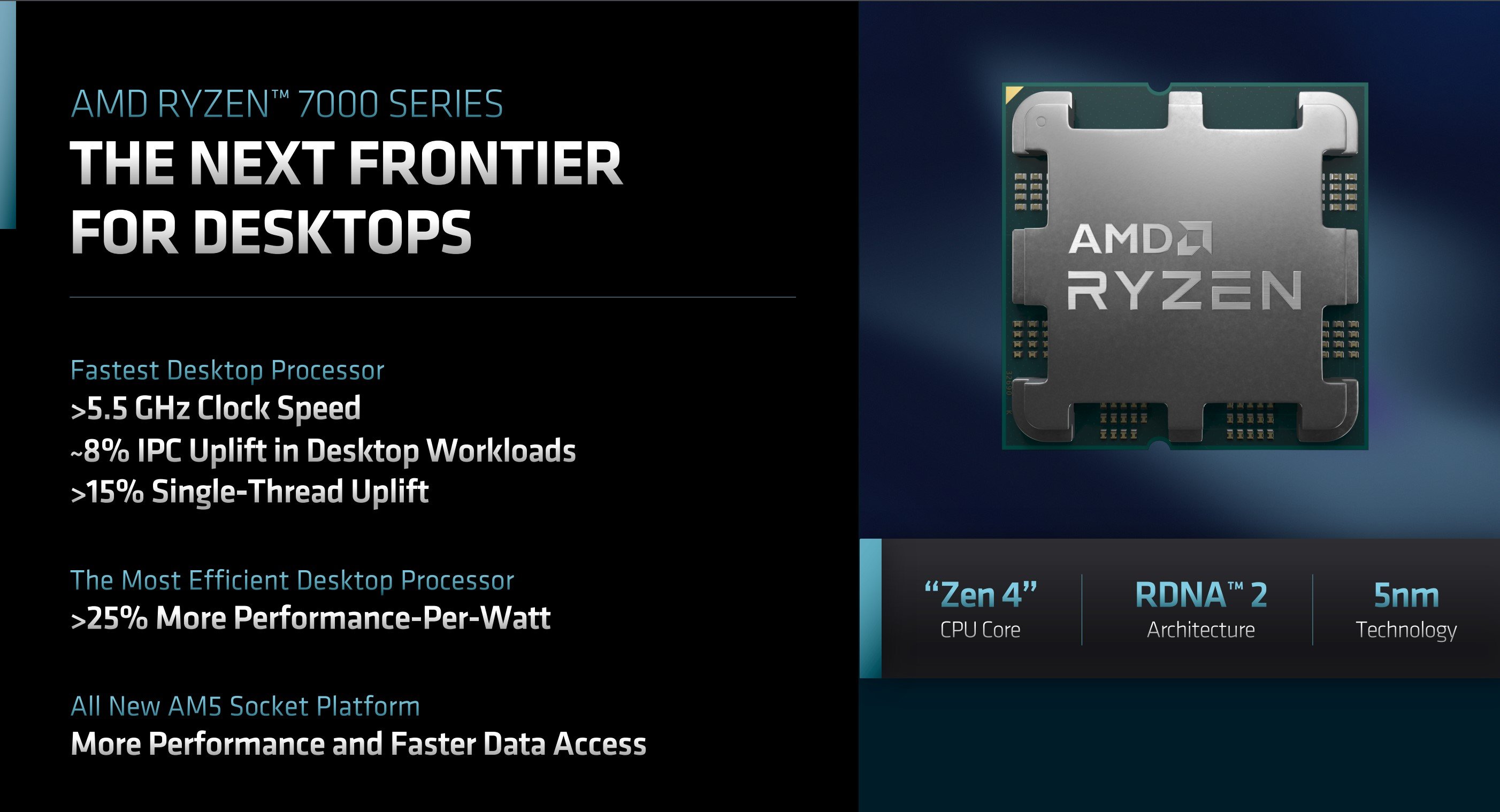
Why the new AMD Ryzen 7000 processors for the AM5 socket are currently not a good deal
Posted by Stefan on 2022-10-11
At the end of September 2022, the time had come: AMD presented its latest desktop processors called AMD Ryzen 7000. Initially, 4 processors with 6 to 16 CPU cores were released.
The new socket AM5 (LGA 1718) is used for the first time, which is intended to replace the very durable socket AM4 introduced in 2017 as AMDs mainstream platform. This includes (depending on the chipset) PCIe 5.0 support as well as the exclusive use of DDR5 memory on all AM5 mainboards.
Officially, DDR5-5200 is the maximum, but with AMDs EXPO Technology which is similar to Intel's XMP 3.0, AMD now also has a solution for easy overclocking of the main memory. AMD itself names DDR5-6000 as the sweet spot for the new AMD Ryzen 7000 processors.
The new socket AM5 (LGA 1718) is used for the first time, which is intended to replace the very durable socket AM4 introduced in 2017 as AMDs mainstream platform. This includes (depending on the chipset) PCIe 5.0 support as well as the exclusive use of DDR5 memory on all AM5 mainboards.
Officially, DDR5-5200 is the maximum, but with AMDs EXPO Technology which is similar to Intel's XMP 3.0, AMD now also has a solution for easy overclocking of the main memory. AMD itself names DDR5-6000 as the sweet spot for the new AMD Ryzen 7000 processors.
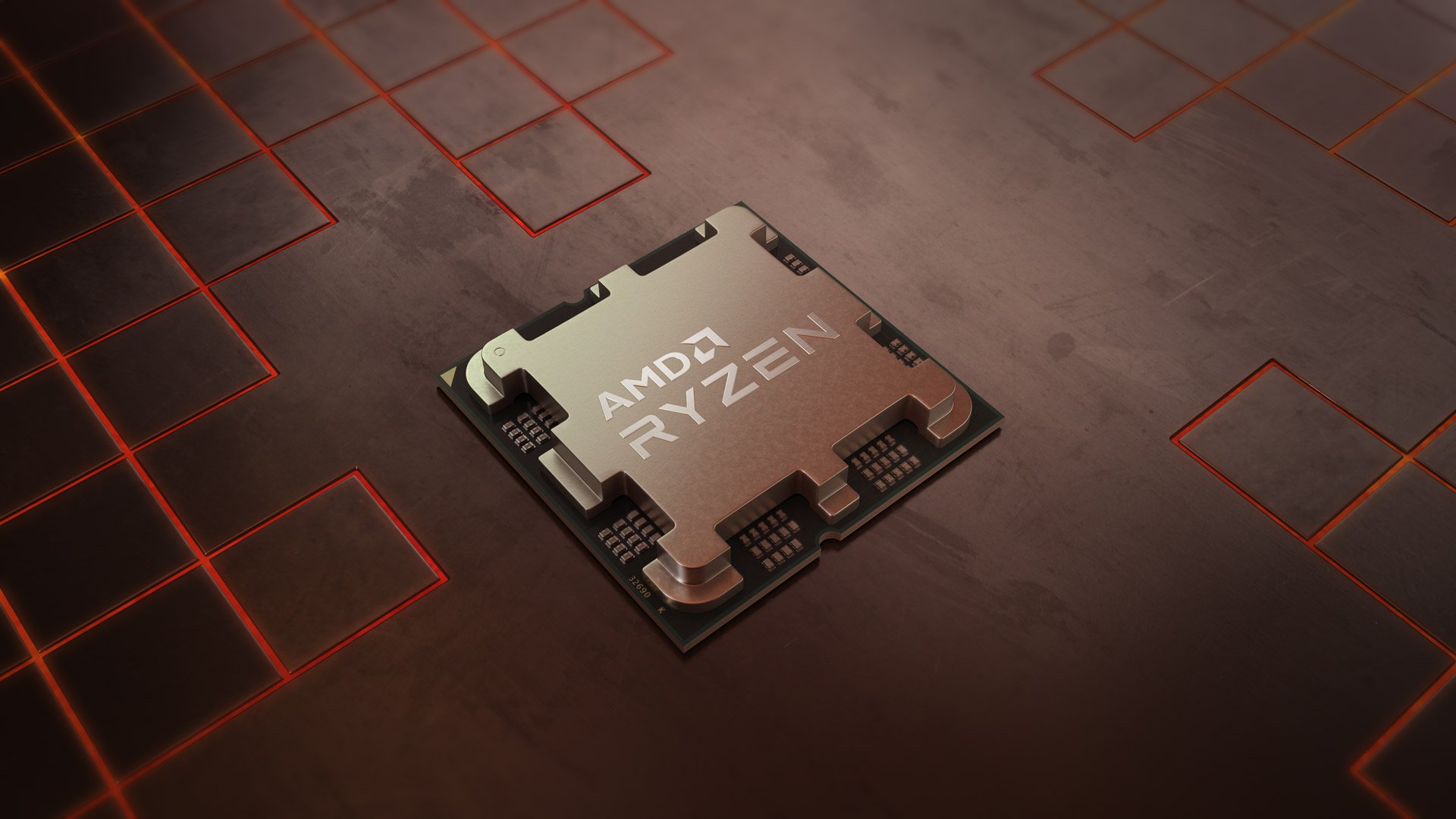
The evolution of AMD Ryzen processors
Posted by Stefan on 2022-09-06
The AMD Ryzen processors are designed for the mid to high-end range and are grouped into the Ryzen 3, Ryzen 5, Ryzen 7 and Ryzen 9 classes. AMD follows the market leader Intel, which groups its Core i series (Intel Core i3, Core i5, Core i7 and Core i9) identically.
The AMD Ryzen processors were first introduced by AMD in Q1 2017. They are the successor to the not particularly successful AMD Bulldozer processors. The latter were manufactured using an outdated manufacturing process and could not keep up with the competing products from Intel. AMD lost a large portion of its desktop processor market share during this period.
The AMD Ryzen processors were first introduced by AMD in Q1 2017. They are the successor to the not particularly successful AMD Bulldozer processors. The latter were manufactured using an outdated manufacturing process and could not keep up with the competing products from Intel. AMD lost a large portion of its desktop processor market share during this period.
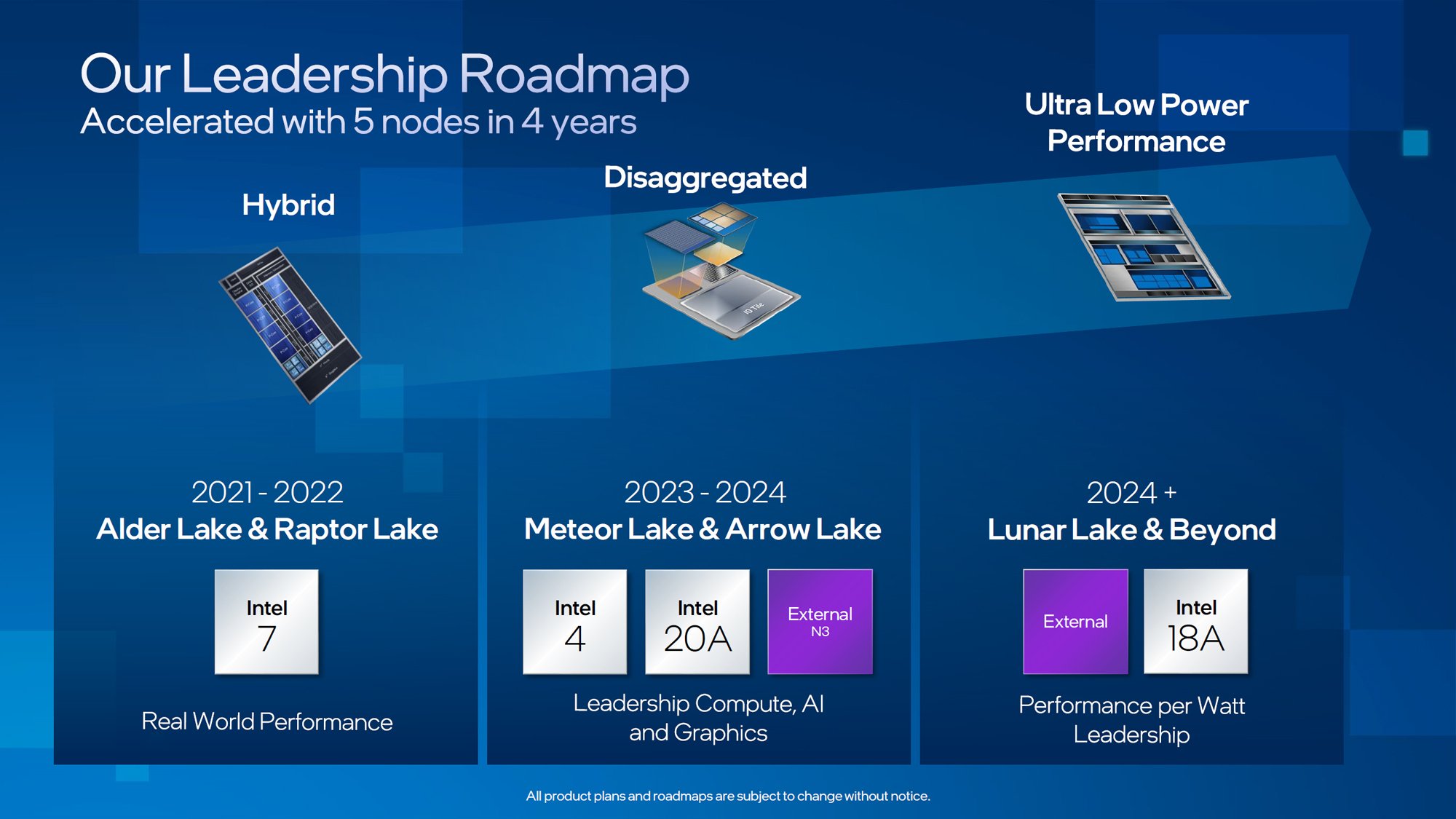
AMD Ryzen 7000 and Intel Core i 13 Gen at almost 6 GHz clock speed
Posted by Stefan on 2022-08-29
In September, both AMD and Intel are introducing their new mainstream desktop processors. It doesn't seem to have been as close as this year for a long time, leaked benchmarks of the new top models from AMD and Intel point to a head-to-head race.
This year even the 6 GHz clock limit is almost within reach. With a good cooler and some overclocking it should be possible to reach the 6 GHz limit. But even in series production, the manufacturers try to realize the highest possible clock frequency, at least on one core.
This year even the 6 GHz clock limit is almost within reach. With a good cooler and some overclocking it should be possible to reach the 6 GHz limit. But even in series production, the manufacturers try to realize the highest possible clock frequency, at least on one core.
Description of the processor
The AMD Ryzen 5 7600X is currently the smallest of the four Zen4 processors that AMD presented on August 29th. It has 6 cores and supports simultaneous multi-threading, so that a total of 12 threads are available.With the introduction of the Zen 4 processors, AMD also introduced a new socket: AM5 (LGA 1718). Among other things, the socket allows a more even and better energy supply to the processor. As a result, AMD was able to significantly increase the clock frequencies of the new processors, especially when several CPU cores are fully utilized.
The base clock frequency of the AMD Ryzen 5 7600X is a high 4.7 GHz. Up to 5.3 GHz are possible in Turbo mode (AMD Precision Boost 2). The new CPUs not only benefit from the high clock frequencies in single-core but also in multi-core operation.
For the first time since the introduction of the Ryzen desktop processors, they have integrated graphics (iGPU). Although this only has two execution units, it is sufficient to connect screens to the computer, even with high resolutions. The technology used here is the RDNA-2 solution, which will be replaced in dedicated graphics cards this year by the successor generation RDNA-3.
Intel has been following the same path for many years and installs a small iGPU in most desktop processors. This means that the processor can also be used without a dedicated graphics card, which can be a great advantage in many areas of application.
For the first time, AMD processors with Zen4 and socket AM5 now support DDR5 memory. The memory controller is released up to DDR5-5200, but the processors use the newly introduced AMD EXPO technology to overclock the main memory. AMD itself used e.g. DDR5-6000 RAM in its presentation, which again significantly increases the bandwidth of the system.
Popular comparisons
back to index




